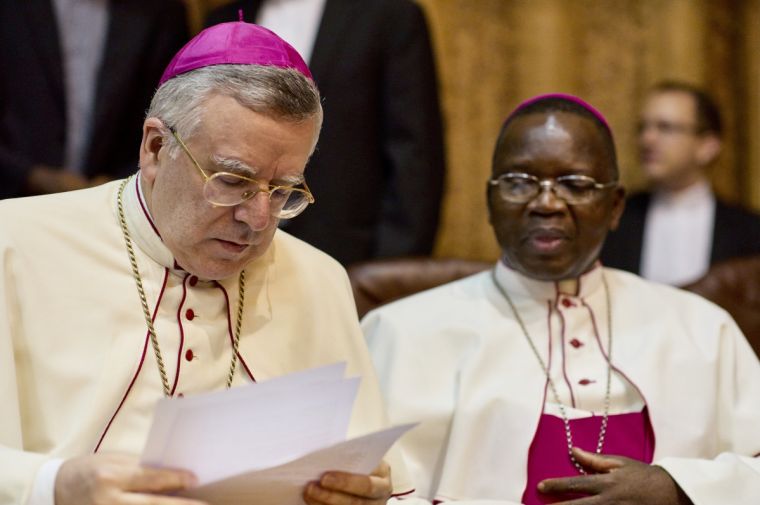Catholic bishops defend their involvement in Congo's troubled politics: 'The Church acts as arbitrator'
Catholic bishops in the Democratic Republic of Congo have defended their involvement in politics after criticism from the country's president at their presence at recent demonstrations.
Following talks with a delegation from the Southern African Development Community (SADC), the Congolese bishops' conference released a statement standing by their 'engagement in actions affecting politics'.

It comes after at least eight people died and 120 were detained in clashes on New Year's Eve when police stormed Catholic churches and fired tear gas during Mass. The protests against the rule of President Joseph Kabila were organised by lay Catholic activists.
A witness at St Michael's Church in central Kinshasa, the capital, told AFP that officers broke up the Mass and arrested altar boys, still in their liturgical robes, on New Year's Eve.
'While we were praying, the soldiers and the police entered the church compound and fired teargas at the church,' the witness said.
Another added: 'People fell, first-aiders are resuscitating old ladies who have fallen' – but all the while the priest continued saying Mass.
Defending their role the bishops said they were obliged to defend the common good, adding the 'religious and ethical dimension' of the Church's mission belonged 'in the public sphere,' and its pastoral work also 'leads it into political territory.'
The statement on their website read: 'The Church here is often asked to act as arbitrator or reconciler, to enable politicians to meet and discuss questions about our national life.'
'The Church has to challenge citizens, put them on guard against dangers and uncertainties, and call them to make choices which respect the human person,' the bishops added.
'Christianity cannot fail to take an interest in humanity, and Christian engagement in history and politics is absolutely necessary. The Church has a duty to help its faithful analyse the great social and moral questions.'
It went on: 'The Church has been given a mission to testify to Christ and the Gospel. If it stays silent, abstains and distances itself from politics ... it will no longer be God's witness and instrument.'
It comes after a meeting with the Botswana-based SADC, the conference secretary-general, Monsignor Donatien Nshole Babula said the bishops believed a solution of the Congo crisis lay with a December 2016 church-brokered accord.
Following the protests and subsequent arrests the Catholic Archbishop of Kinshasa, the country's capital, Cardinal Laurent Monsengwo Pasinya, likened the country to an 'open prison'.
'Christians were prevented from praying. Others were prevented from leaving by...police and military who were armed as if they had been on a battlefield,' he said.
'How can you kill men, women, children, youths and old people all chanting religious songs, carrying Bibles, rosaries and crucifixes? Are we now living in an open prison?'
Pope Francis has also spoken out on the issue, telling his weekly audience in St Peter's Square: 'I renew my appeal that everyone make all efforts to avoid any form of violence. From its side, the Church wants nothing other than to contribute to peace and to the common good of society.'











